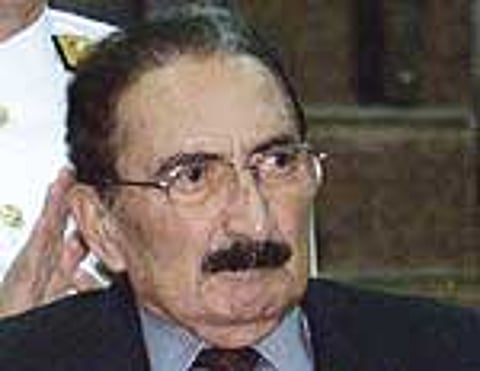International Slipstream
Waning attendance at Berlin's Love Parade, crisis in Turkey and the debate on bin Laden's fate.
]

When Berlin’s famed Love Parade began at 6.30 pm on July 13, an ocean of revellers overflowed at the Tiergarten venue. Yet the organisers thought there weren’t enough people—only about 500,000 attended this year’s Parade, down from 800,000 in 2001 and a million in 2000. Waning attendance has now caused sponsors to reconsider participation, raising the grim prospect that this year’s scintillating music and dance roadshow could be the last. The Love Parade had its humble beginnings just before the fall of the Wall in ’89 when West Berlin DJ, Dr Motte, had organised a rally of 150 techno-music lovers, seeking to promote respect and understanding among nations through music. The Parade has since grown, attracting ravers from all over, lustily cheering convoys of scantily-dressed dancers gyrating to brain-shattering music blasts spun by over 250 DJs.

The collapse of the Bulent Ecevit government has added new wrinkles to US attempts at toppling Iraq President Saddam Hussein. With Islamists expected to return to power in the polls tentatively slated for November 3, Bush’s hope of rallying Turkey to his cause appears nixed. The crisis was sparked by mass desertions from ailing Prime Minister Ecevit’s Democratic Left Party (DSP). Its provenance were the varying perceptions over human rights reforms—required to press forward Turkey’s EU entry prospects—and the economic recovery programme of the International Monetary Fund. Ecevit’s wife Raisin’s clout over him and the party was also a factor. Ecevit—a noted Sanskrit scholar who’s translated the Gita into Turkish—is expected to lead a three-party alliance into the elections. Opinion polls, though, give the pro-Islamic Justice and Development Party a headstart, an alarming prospect for Turkey’s military leaders who had driven out Islamist PM Necmettin Erbakan in ’97.
Is Osama bin Laden alive? Abdel-bari Atwan, editor of London-based Arabic magazine Al-Quds Al-Arabi, quoted bin Laden’s followers saying that he had recovered completely from shrapnel wounds in the shoulder, suffered during US attacks on the Tora Bora caves last year. Western intelligence agencies, however, are still to make up their minds on this. FBI counter-intelligence chief Dale Watson says he believes bin Laden is dead (largely because they don’t have information to the contrary) while August Hanning, head of Germany’s foreign-intelligence agency, is "convinced" he’s still alive.
Tags